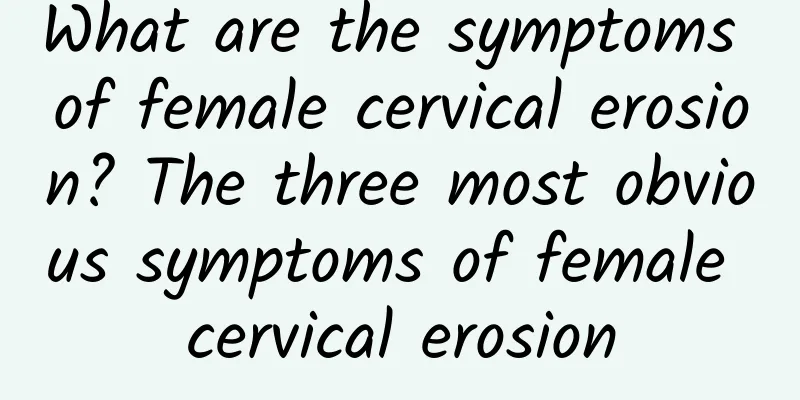What to do if the pain from Bartholinitis subsides?

|
If pain is still felt after the swelling of Bartholin's glands subsides, anti-inflammatory treatment should be continued and local care should be combined to relieve symptoms. Treatment methods include antibiotics, local hot compresses, sitting baths, etc. The cause of pain may be related to incomplete subsidence of inflammation or local tissue repair. 1. Antibiotic treatment: Bartholinitis is mostly caused by bacterial infection. Antibiotics should be continued to control infection after the swelling subsides. Commonly used drugs include cephalosporins, penicillins or quinolones. The specific choice should be determined based on the results of bacterial culture and drug sensitivity test. Oral or intravenous antibiotics can be used. The course of treatment is generally 7-10 days. The entire course of treatment should be completed according to the doctor's instructions. 2. Local hot compress: Hot compress can promote local blood circulation, accelerate the absorption of inflammation, and relieve pain. Use a towel soaked in warm water or a hot water bottle, the temperature is controlled at 40-45℃, and apply hot compress for 15-20 minutes each time, 2-3 times a day. Be careful to avoid burns when applying hot compress, and keep the local area clean and dry after hot compress. 3. Sitz bath: Sitz bath can clean the local area, promote inflammation and relieve pain. Use warm water or potassium permanganate solution, the water temperature is controlled at 37-40℃, and each sitz bath lasts 15-20 minutes, 1-2 times a day. After sitz bath, wipe the area dry to avoid bacteria breeding in a humid environment. 4. Local care: Keep the vulva clean and dry, avoid friction and irritation. Wear loose and breathable cotton underwear, and avoid using irritating lotions or sanitary napkins. Apply antibiotic ointment or anti-inflammatory ointment, such as erythromycin ointment, mupirocin ointment, etc., to promote wound healing. 5. Pain management: If the pain is obvious, you can take oral nonsteroidal anti-inflammatory drugs to relieve the pain, such as ibuprofen, acetaminophen, etc. Pay attention to the dosage and time of medication, and avoid long-term use. If the pain persists or worsens, you need to see a doctor in time to rule out other complications. If you still feel pain after the swelling of Bartholin's glands subsides, you need to continue anti-inflammatory treatment and combine local care to relieve symptoms. Antibiotic treatment, local hot compresses, sitz baths and other methods can effectively control infection, promote inflammation and relieve pain. If symptoms persist or worsen, you need to see a doctor in time to rule out other complications and ensure that the disease is completely cured. |
<<: Can uterine cysts be treated with medicine?
>>: What is Bartholin's gland cyst?
Recommend
The most important nursing measures for adnexitis
Among the many types of gynecological inflammatio...
The cure rate of female abortion
It is such a happy thing to be able to successful...
Patients with cervical precancerous lesions must use medication scientifically and appropriately
Cervical cancer is one of the most common maligna...
Is second-degree cervical erosion serious? What are the symptoms and hazards of second-degree cervical erosion?
The symptoms of cervical erosion are divided into...
In daily life, we need to take timely measures to prevent cervical hypertrophy
Cervical hypertrophy is a disease that most women...
Understand the detailed points of painless abortion precautions
Painless abortion is very harmful to our female c...
How to use medicine for bacterial vaginosis after menstruation
Vaginitis is mainly caused by the reduction and d...
What should I do if my period comes 3 to 5 days early every month?
What should I do if my period comes 3 to 5 days e...
What are the causes of cervical hypertrophy?
Cervical hypertrophy is a common gynecological di...
What are the causes of uterine fibroids? Can uterine fibroids cause infertility?
Uterine fibroids are relatively small and difficu...
Which hospital is the most authoritative for cervical erosion?
Which hospital is the most authoritative for cerv...
How should women with mild cervical erosion regulate and care for mild cervical erosion? Five points to pay attention to
There are still many patients with cervical erosi...
Vulvar itching and yellow leucorrhea
What's wrong with vulvar itching and yellow l...
Women take painkillers every time they have menstrual cramps. Are painkillers harmful?
For women, the most feared thing when the menstru...
Expert introduction: Advantages of ultrasound treatment of ovarian cysts
Ultrasound is a technology with high medical valu...









